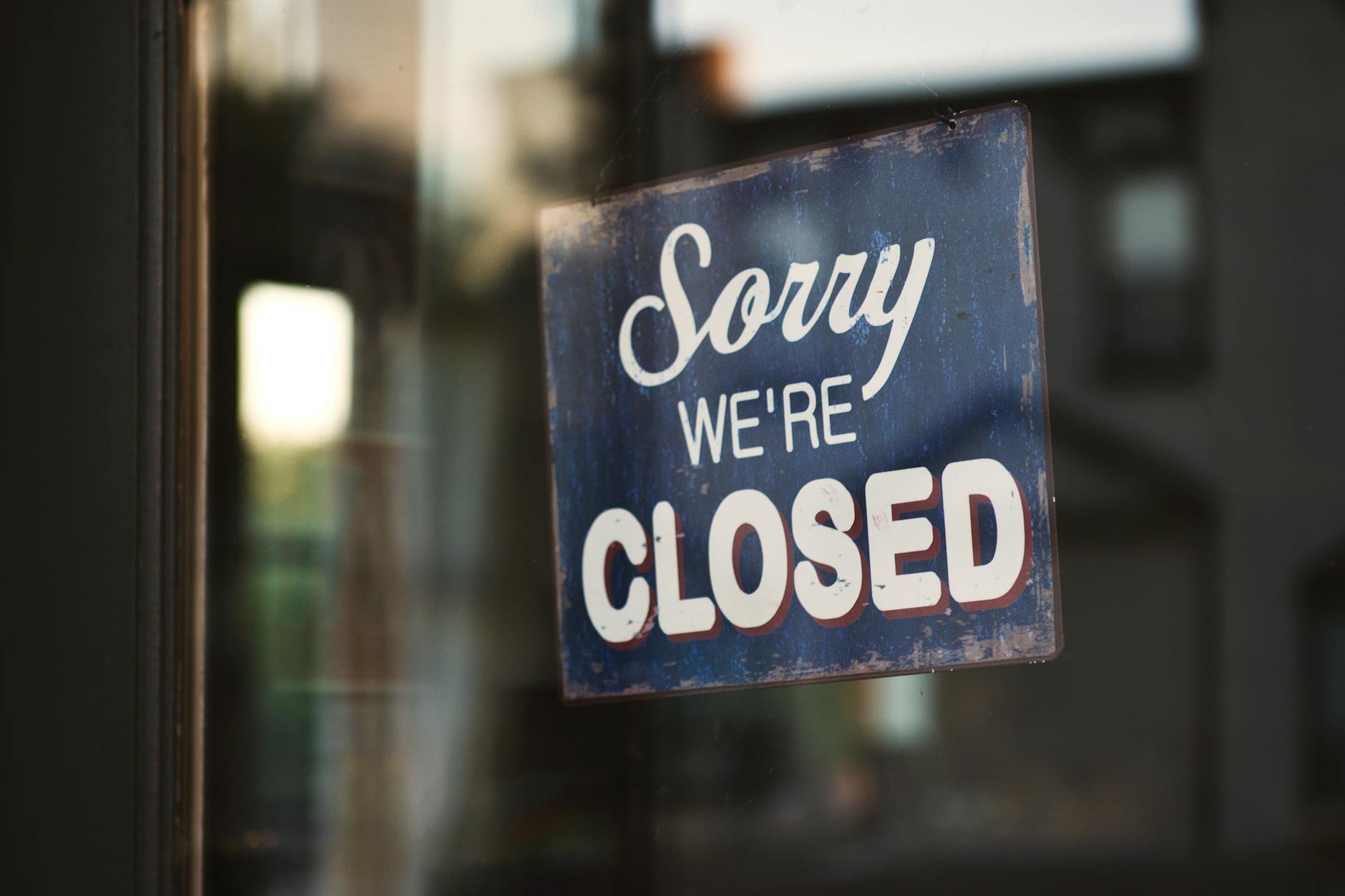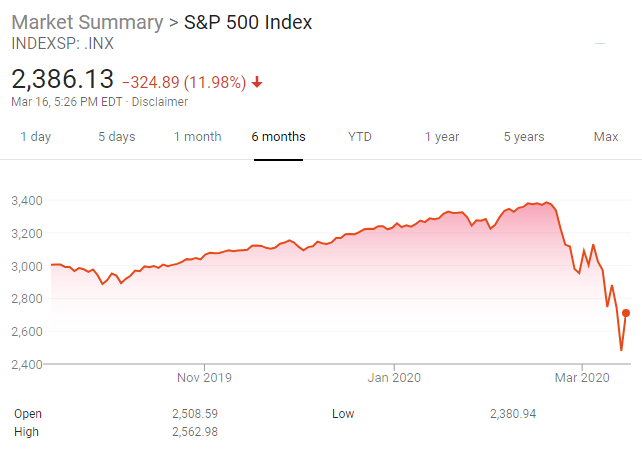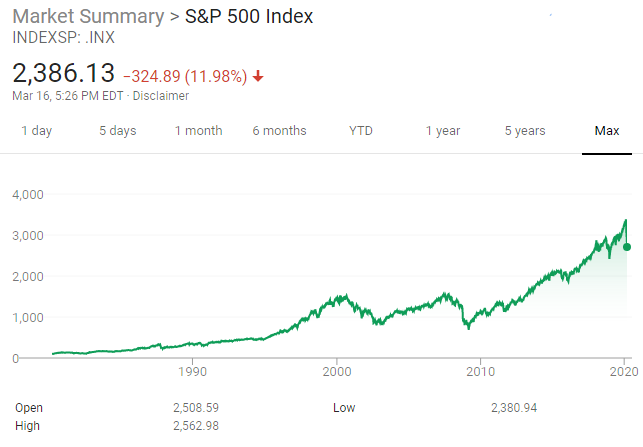7 Tips for Surviving A Recession After You Failed To Prepare


We’re fortunate to earn money when you click on links to products or services we already know and love. This helps support the blog and allows us to continue to release free content. Read our full disclosure here.
“It’s a recession when your neighbor loses his job; it’s a depression when you lose yours."
-Harry S. Truman
I see plenty of articles with advice on how to prepare for a financial recession – but what do you do once you’re in one?
Lots of people can tell you what to do before the big one hits – that’s easy.
But what should you do if you didn’t prepare?
This is unfortunately where most of America is sitting right now. At least you’re in good company!
The advice here revolves around two main concepts:
- Reduce financial vulnerability.
- Take advantage of opportunities safely.
Prerequisite: Don’t panic.
It’s easy to fall down an emotional spiral if you’re staying current on the news. Things aren’t looking so good.
But there are steps you can take to lessen any damage coming your way. Even if it feels like you’ve missed the boat on preparing for the crisis – you can always practice harm reduction.
The best remedy for fear is action, and the best path to action is a plan.
So take a deep breath and keep reading.
1. Closely monitor spending.
If money isn’t tight yet, it very soon might be. Make every dollar count.
If you haven’t already – start tracking your expenses. This will give you a baseline estimate for your monthly spending. From there you can start to safely introduce changes.
Most folks will tell you to watch out for lattes – and they’re not wrong. You should keep an eye on discretionary spending.
It’s arguably more important to keep a budget when you’re broke. Almost every dollar will already have a place to go – so it’s extra difficult to set money aside for savings. But if youre not keeping a budget and tracking your expenses, it’s infinitely more likely that extra dollars will be squandered.
Why We Don’t Save #2: “I don’t make enough money.”
But pay special attention to big-ticket items that can’t be downsized in an emergencies.
- Mortgage/Rent
- Insurance
- Childcare
- Phone
Fixed expenses are dangerous. You can’t simply “spend less” on your mortgage if you lose your job. You’ve made a financial commitment.
What No One Will Tell You About The 50/30/20 Rule
These are the squiggly tree roots waiting to trip you as you run for your life. If you lose your job, you’ll need a back-up plan.
Ask yourself what you could afford if you lose your job, and what you'd do if you couldn't afford to keep any of it. It may sound bleak, but choosing between selling your house and taking out a second mortage is a decision best made with a clear head.
Create a budget and start tracking expenses for free with Vermillion!
2. Avoid taking risks.
The theme for a recession is unpredictability.
At any moment you might lose a vital source of income or be hit with an unexpected hardship. If you had the foresight to prepare, you’d have a nice emergency fund to fall back on.
But we’re assuming you don’t.
Without a safety net, you're more vulnerable - so act like it. Now is not the time for theatrics. Here are some things you might want to second-guess:
- Quitting a job you hate without another one lined up.
- Forgoing health insurance.
- Risking fines by not paying car permits, metro tickets, etc.
- Taking out a big loan for your new business idea.
It’s not fun, but it’s probably a lot safer to pursue your new career passions on nights and weekends for the time being.
3. Plan to invest.
I know I just said to avoid risks. What gives?
Investing is an important part of your financial long-term strategy. The question shouldn’t be when to start – it should be how much and where.
But if we did ask when – the answer would be right now.
The S&P has dropped like a brick these past few weeks.
…but it’s been worse.
What we’re seeing right now is the equivalent of a massive sale.
And the mantra goes: Buy low, sell high.
The people who sell in this sort of environment fall into two categories:
- Folks afraid of a total and complete collapse of the national economy.
- People who desperately need the cash because of recession-related financial hardships.
Does that last group sound familiar? That could be you. This is why it’s important to avoid unncesseary risks (see #2) – so that you can take advantage of good deals.
Ask your financial advisors and investment-savvy friends (minus the bitcoin bros) about where to put your money – and then commit to doing it.
I hope it’s clear from that second picture that it would have been much better to start investing years ago. The second-best time is now.
4. Diversify income and skills.
Now is probably the wrong time to quit your job and go back to school full-time unless you’ve already prepared by setting aside a good chunk of cash.
But this doesn’t mean you shouldn’t grow!
Adding skills and certifications could make you more valuable to your employer – AKA last to be laid off. Can they afford to lose the only one who knows where the bodies are buried?
A side-hustle is even better - because being let go from your dayjob won't mean a 100% loss of income. Anything you can do to reduce or soften the likelihood of losing your livelihood is a good route to take.
Just make sure you’re evaluating things clearly. A side-gig can easily eat into your main squeeze without providing any income at all. Your employer might feel better about firing someone with one foot out the door. But you may be rationalizing it because it’s your passion.
Sorry. Maybe next year.
If you do lose your job, you could try transitioning to a "recession-proof" job or industry.
During the 2008 crisis, my mother worked in the Oregon Employment Department while state unemployment rates were at an all time high. They desperately needed staff to cope with the hordes of people expecting unemployment benefits.
When unemployment went down, her office scaled back its staff to better fit demand -- but she had an easier time finding a job!
Similarly, industries like healthcare are seeing a recent boom for... obvious reasons.
5. Stockpile supplies within reason.
The theme here is to prepare for a job loss, not the apocalypse.
Unfortunately a job loss can last months – even years – during a recession. But I wouldn’t expect anyone to have a year’s worth of food in their basement. Most people don’t even have a basement. For extended hardships, see #7.
Instead of raiding every aisle in the grocery store, try to keep a well-stocked pantry with shelf-stable, nonperishable food.
Think of it as a small investment now that you can cash in later.
And remember to use it. Don’t continue ordering takeout after you lose your job.
6. Cut unnessecary expenses.
Remember #1?
If you haven’t already – start tracking your expenses. This will give you a baseline estimate for your monthly spending. From there you can start to safely introduce changes.
-Me, 2 minutes ago
Since you’ll need every cent to be working it’s hardest, it’s time to take a hard look at things to cut. You wouldn’t put your star employee on mop-duty. So why are you doing it with your money?
Your employeedollar-of-the-month is paying for that fancy new bathroom instead of preparing to pay that parking ticket you’ll get next month. And when you come up short on cash, you’ll go into debt to pay it.
When you see clickbait articles with titles like: “How I saved $1000/month on food” — this is how they did it.
5 Ways To Slash Your Food Spending
The point isn't to cut spending - the point is to train yourself to live on a reduced income. If you want to funnel that money into an emergency fund or low-cost index funds… well, that’s up to you.
7. Embrace the social safety net.
It’s tempting to boil the ocean here. But it’s impossible to prepare for every possibilitiy.
Don’t be afraid to seek out help from public agencies and non-profits.
- Unemployment benefits
- SNAP/WIC/Food Stamps
- Food Pantries
- Clothing Drives
- Free Clinics
- Medicaid
It’s easy to think you’re “above” using some of these, but you’re exactly the target demographic if you’re in need.
But keep lanes clear for those even less fortunate than you.
For example, try to avoid products marked as WIC or food-stamp eligible when stockpiling supplies (see #5). Folks on food stamps often can't "switch to another brand" for convenience. So if you clear out the only food they can buy, they'll leave the store empty-handed.
Take only what you need and leave some for others.
Related Posts

How to Conquer The Corona Cash Crunch

Why We Don't Save #4: "My partner won't budget."



